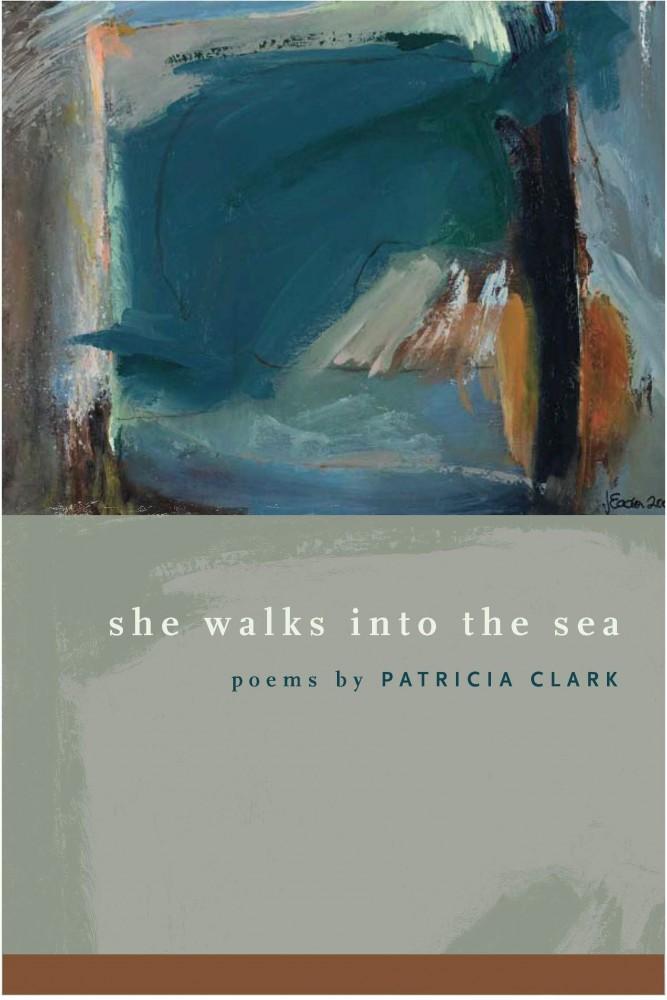Scratching beneath the surface with GVSU’s poet-in-residence

Courtesy Photo / Patricia Clark She Walks Into the Sea, a collection of poems by Patricia Clark
Nov 4, 2010
“It’s almost like you’ve got something that itches and you’ve got to scratch it,” said Patricia Clark, Grand Valley State University’s poet-in-residence and a professor of writing. “For writers, it’s like there’s something under your skin you have to work out and solve like a puzzle.”
Clark has been itching and scratching as a poet for more than 30 years. Having written hundreds of poems, her works have been published in many national literary magazines, including the Atlantic Monthly, Slate and Mississippi Review. She also authored three books of poetry, “North of Wondering,” “My Father on a Bicycle” and “She Walks Into The Sea” and has received numerous writing awards. She served as Poet Laureate of Grand Rapids, Mich., from 2005-2007.
But before Clark was an accomplished poet and a professor at GVSU, she was an 8-year-old girl walking down the sidewalk with a stack of books cradled in her arms.
Born in Tacoma, Wash., Clark grew up with seven brothers and sisters. Her interest in reading and writing was first sparked during a childhood family ritual established by her mother.
“Something I remember from a fairly early age is going to the public library,” Clark said. “I’d go with an older sister, and we’d get an arm load of books. It took especially with me. I turned out to be the biggest bookworm in my family.”
Clark also cites going to church as another factor that was instrumental in influencing her affinity for language.
“The beauty of going to church, the holiness and specialness, and they way they would read certain things, it was magical,” she said. “It got me hooked as a child.”
In high school, Clark was further captivated by the works of E.E. Cummings and other poets, but she said she didn’t yet see herself as a writer.
When Clark attended the University of Washington in Seattle, she still hadn’t realized that writing was for her and instead chose to major in economics. After she graduated, Clark finally admitted to herself that she wanted to be a writer.
After seeking out writing programs recommended to her by friends and family, she started taking creative writing and poetry classes as a non-degree student.
“I began to see that you could say, ‘I want to be a writer,’” Clark said. “It was liberating.”
Clark went on to earn a Master’s of Fine Arts in English and creative writing from the University of Montana and a Ph.D. in English from the University of Houston.
“Each stage of the journey ended up taking me further from where I had grown up,” Clark said. “But that was good. When you get that far and start looking for a job, you go where opportunities take you.”
In the fall semester of 1989, opportunity brought her to GVSU as the expert and advocate for poetry on campus. As the poet-in-residence, Clark hosts poetry nights, invites national writers to speak on campus and writes poems for special university occasions, including convocation.
Clark had not heard of GVSU before her first interview, but she was immediately charmed by the people she met, the lively atmosphere on campus and the school’s potential for growth.
“I had some other interviews and another job offer, but I really wanted Grand Valley from the first time I came here,” she said. “I really feel like I made a good decision.”
Each school year, Clark typically teaches beginning creative writing classes that cover poetry, fiction and nonfiction, as well as upper-division classes in reading and writing poetry. She also strives to connect students to poets from around the country and resources for graduate school.
Though Clark has spent years perfecting her craft as a poet, she also makes time for her other interests, including travelling, gardening and anthropology.
“One piece of advice for writers is to be interested in lots of different things because you can bring them into your work,” she said. “If you just write about yourself, you run out of things to write.”
Clark explained while artists have paint, clay and other materials to work with, writers only have words. Writers need new ideas to write about and new vocabulary that they gain by exploring new subjects.
“It gives you more to write about than just your broken heart,” she said. “I don’t like to be bored. I like to be interested in things, the more things the merrier.”
From her experience, Clark emphasizes the importance of setting new challenges and continuing to learn every day. For example, she suggests writers try to use new words, poetic forms and phrasing.
“Because if you’re bored with what you’re doing, the readers will be, too,” she said. “You have to find new things to say and new ways to say them.”

























